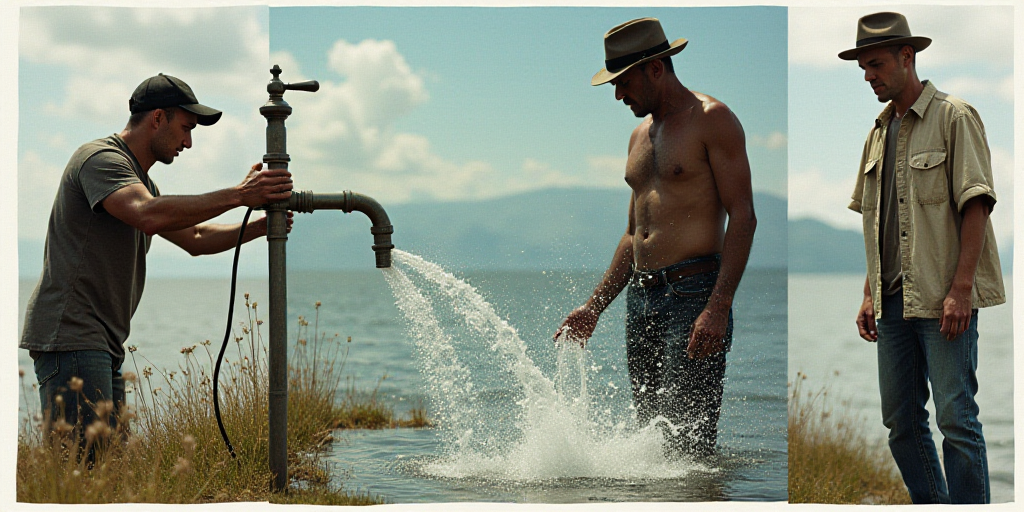Introduction
Mexico faces a severe water access problem, particularly in its central and northern regions. The global water scarcity issue affects communities, economies, and the environment more than ever. In Mexico, where droughts are increasingly frequent and severe due to climate change, the implications of water stress are evident in key sectors like agriculture and industry. Amidst this backdrop, companies reliant on water as a crucial resource for their operations, such as Tork®, have implemented sustainability practices to mitigate the impact of the water crisis.
The Water Crisis in Mexico
Climate change, population growth, and overexploitation of natural resources have led to a drastic decrease in water availability in Mexico. According to the World Bank, water availability dropped from 10,000 cubic meters per capita in 1960 to just 4,000 cubic meters in 2012. By 2030, it is expected to fall below 3,000 cubic meters. These figures highlight the urgent need for measures to ensure more efficient water use, especially in sectors like agriculture, which consumes 76% of the country’s water resources according to INEGI.
Impact on Agriculture and Food Security
Water scarcity not only threatens potable water supply but also directly affects agricultural production and food security. In 2024, Mexico’s agro-livestock production dropped by 2.1%, with significant reductions in fruit and vegetable production due to droughts exacerbated by climate change. Crops like maize, avocado, and tomatoes have been affected, causing price increases for these essential goods. In May 2024, 80.3% of Mexico’s agricultural production faced drought conditions, the highest level since 2016, according to the Bank of Mexico.
Tork®’s Sustainable Practices in Uruapan
In response to this situation, Tork® has adopted several measures in its Uruapan plant to optimize water usage and contribute to resource conservation. Paulina Barragán, Tork®’s Director of Communication and Sustainability, explains that sustainability is a cornerstone in the company’s business strategy, with all operations aligned to a circular production approach that aims to reduce environmental impact and promote responsible resource use.
Water Recycling System
At the Uruapan plant, Tork® has implemented a highly efficient water recycling system. According to Barragán, 66% of the water used in plant operations comes from recycled sources, while only 34% is extracted from deep wells, avoiding the use of water intended for human consumption. Moreover, the plant features a cogeneration system that enables it to produce its own energy, further reducing its reliance on external resources.
Environmental and Operational Benefits
The water recycling in the Uruapan plant not only promotes efficient resource use but also supports environmental conservation. Tork® has established strict protocols to ensure that recirculated water meets quality standards, guaranteeing the safety and operational efficiency of its processes. Water recycling is a key strategy for reducing the company’s water footprint and minimizing its impact on local ecosystems.
Ensuring Sustainable Water Access
Barragán emphasizes the necessity of implementing policies and technologies for more efficient water management, both in industry and domestic consumption. Physical, chemical, and biological water treatment technologies have proven effective, but it’s crucial to review and adjust consumption levels across all sectors. Adopting a circular approach, like Tork®’s, may be the key to ensuring future generations have the resources needed for healthy and sustainable living.
Key Questions and Answers
- What is the water crisis in Mexico? Mexico faces a severe water access problem, particularly in central and northern regions. Climate change, population growth, and overexploitation of natural resources have led to a drastic decrease in water availability.
- How does the water crisis affect Mexico? The water scarcity threatens potable water supply and directly impacts agricultural production and food security, causing price increases for essential goods.
- What sustainability measures has Tork® implemented? Tork® has adopted a circular production approach in its Uruapan plant, implementing an efficient water recycling system and cogeneration for energy production.
- Why is water recycling important for Tork®? Water recycling promotes efficient resource use, supports environmental conservation, and reduces Tork®’s water footprint and impact on local ecosystems.
- What policies are needed to ensure sustainable water access? Implementing policies and technologies for efficient water management, reviewing consumption levels across all sectors, and adopting circular approaches are crucial for ensuring future generations have access to essential resources.






